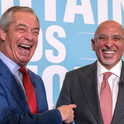If nothing else, Britain’s departure from the European Union has been a voyage of discovery into our past as well as our likely future. Here are nine painful lessons we have learned.
The price of victory, again
Jean Monnet, the French architect of European integration after the second world war, subsequently said that Britain’s failure to join in the project at the outset was “the price of victory—the illusion that you could maintain what you had, without change.” Standing aloof from the new venture meant that Britain was unable to shape integration in the 1950s, when it could still exert enormous power within Europe. By the time that the British government realised it was in the national interest to board the train it had already left. When Britain did eventually join in 1973 it was on European rather than British terms.
Now Britain is leaving, again on European terms, as was laid bare in the negotiations of the past three years, culminating in Boris Johnson’s acceptance of a deal for Northern Ireland that Theresa May had rejected as unacceptable. The readiness to quit the European club is rooted in the popular national story, which harks back too often to the heroic years of the second world war, in which the retreat of Dunkirk became a triumph and any acknowledgement of the contribution of empire and allies is only half-hearted. Britain continues to pay the price of victory and the myth of plucky national self-reliance that it fostered.
De Gaulle was right for the wrong reason
When the French president vetoed Britain’s first application under Harold Macmillan to join the European Economic Community, he said Britain did not fit in to the project. At that fateful press conference in January 1963, he said that unlike the six continental founder members England was “insular” and “maritime,” linked in commerce to “the most diverse and often the most distant countries.” He feared that British entry would undermine the cohesion of the European club, in effect acting as a trojan horse to produce a bigger and looser group of states that would ultimately become “a colossal Atlantic community under American dependence and direction.”
The referendum seems to show that de Gaulle was right in believing that Britain would not belong to the European community. But the British did not vote to leave the EU because they hankered for a global commercial role. Still less are they keen on more American influence under Trump or any other president. The vote was above all an exercise in British (and especially English) insularity.
Referendums are a bad idea, Britain’s was worse
Direct voting is generally inferior to representative democracy where ministers advised by officials take decisions that are subject to scrutiny and votes by MPs. Plebiscites create binary outcomes determined by voters who can’t reasonably be expected to study the fine details of what “WTO terms” really mean.
But if you are going to call a referendum on a profoundly important issue it is vital to have some safeguards. In Australia, it is not enough to achieve a national majority in order to change the constitution; there has to be a majority in at least four of the six states. Given the imbalance in the UK, where England has a much bigger population than the other three nations, such a rule wouldn’t work.
But the Leave camp, arguing for the biggest upheaval in a generation, should have been given a higher fence to jump than 50 per cent of the vote. David Cameron should have insisted that 40 per cent of the electorate as a whole backed Leave, for which there was already a precedent in the Scottish referendum in 1979 on devolution. In that vote, supporters of devolution won by the same margin as Leave did in the EU referendum, by 52 per cent to 48 per cent, but failed to get their way because they were only 33 per cent of Scotland’s electorate.
In his memoir, For The Record, Cameron says that he considered the idea but rejected it, crossing his fingers that backbench pressure might bring this about. “Then it would be Parliament deciding, not me trying to fix the result” was how he described this unforgivable misjudgment.
Don’t give interviews in your kitchen (to a fellow Etonian)
Cameron’s original sin was to offer a referendum in the first place. But he combined that with another own goal: that unguarded interview with the BBC’s James Landale in his kitchen before the 2015 election in which he said he would not stand for a third term of office. With that careless remark Cameron blew the whistle for a new Tory leadership race, ensuring that the European referendum would become entwined in that contest, ultimately leading Johnson to pitch in to curry favour with Conservative party members.
If only: timing matters
Compounding his unforced errors in first promising an unnecessary referendum and then in effect declaring the start of the Tory leadership race, Cameron mistimed the date of the referendum. He did not have to call it as soon as June 2016, which he records in his memoir was “the earliest date officials had earmarked.” That choice meant that the vote came in the immediate aftermath of the migration crisis of 2015, allowing the Leave camp to exploit worries about immigration even though the mass influx was into Germany. As Cameron said in For The Record, the notorious “Breaking Point” poster unveiled by Nigel Farage showing a long line of migrants at the EU’s border in Slovenia in 2015 was “a single, defining image” of the referendum campaign, fostering the false perception that all these people were on the way to Britain.
Cameron could easily have postponed the vote to 2017 (the Referendum Act passed in 2015 stipulated that it had to be held by the end of that year). That would have allowed him to act tough in rejecting the European concessions, even if he was unable to achieve much more in subsequent negotiation. If the referendum had come after the election of Donald Trump in November 2016 at least some Leave voters might have seen the wisdom of remaining in the EU club.
It was the economy, stupid
The received wisdom about the referendum result was that worries about immigration and loss of sovereignty prevailed over the economy. “Bring back control” trumped “Project fear,” George Osborne’s message about the economic damage that Brexit would cause. But in a broader sense the economy did determine the result. The strength of the Leave vote was a belated response to the financial crisis of 2008 that destroyed faith in economists, allowing Michael Gove to dismiss the views of experts during the campaign. And it took place after a prolonged reversal to average real wages in the wake of that crisis; although they picked up again from mid-2014 they were still lower at the time of the referendum than in 2007.
Leave voters were prepared to risk economic harm because the economy wasn’t delivering for them anyway. At a Brexit debate in Newcastle in the run-up to the referendum, a London-based academic said that the likely plunge in GDP if Britain left the EU would dwarf any savings in contributions to the EU budget. A woman cried out: “That’s your bloody GDP, not ours.”
The Leave vote was about control, but from London rather than Brussels
When the Leave camp came up with their slogan about “bring back control”, this was supposedly about repatriating powers from the EU to Britain. Leavers bought into that message, or so the story goes. But it resonated in so many parts of England because people living in the regions felt neglected and disempowered while London called the shots. This disenchantment with the metropolis gathered strength especially in the north after Scotland won more powers, which contrasted with the lack of similar clout in English regions. Brexit was a provincial revolt against the over-centralisation of power in England. Yet if anything, Brexit will reinforce the grip of Whitehall and Westminster.
Brexit has always meant the Canada option
In the specialised jargon of Brexit, “Canada” became shorthand for Britain reaching a free-trade agreement with the EU similar to the one that Canada recently reached with the bloc. David Davis, the first Brexit secretary, said inimitably that he wanted a Canada “Plus Plus Plus” deal. Mindful of the fact that Treasury forecasts showed that any such agreement would be a big minus for the economy, May sought a closer embrace through her white paper of July 2018.
Now under Johnson, who resigned from her government after she presented that strategy to the Cabinet at Chequers (a typically calculated move, taking his cue from Davis who had already quit), the goal is apparently once again this type of rudimentary agreement. Crucially, it will lack the close integration Britain currently enjoys through the single market, which Margaret Thatcher did so much to create in the 1980s.
But in a more profound sense, Britain has elected to share the destiny of Canada, stuck in the orbit of a much bigger economic power that is its immediate neighbour, tugged this way and that by decisions in which it has no say. And if it tries to balance somewhere in the mid-Atlantic it is likely to find itself pulled in both directions. In medieval times that form of torture was called a rack.
Half-out, half-in is worse than half-in, half-out
Once inside the European club, Britain was able to use its economic and political clout to insist on special concessions. Thatcher got a better budget deal. John Major kept Britain out of the euro. Tony Blair retained border checks on the movement of people coming from the EU, keeping Britain out of the Schengen area. Cameron secured at least some concessions such as a commitment to exclude Britain from the EU’s goal of “ever closer union” in the deal that he reached with European leaders in February 2016.
Economic logic and geographic proximity mean that Britain will eventually forge close links with the EU. But just as was the case when it was outside the EEC between 1958 and 1972, it will find itself on the backfoot, responding to European initiatives rather than shaping them. That’s the paradox of sovereignty in Europe: cede it and you win more influence; wrest it back and you lose real power.
The Brexit learning curve: nine lessons from Britain’s tortured relationship with Europe
The UK’s foolish decision to quit follows a series of historical misjudgments
January 30, 2020

Photo: DPA/PA Images











